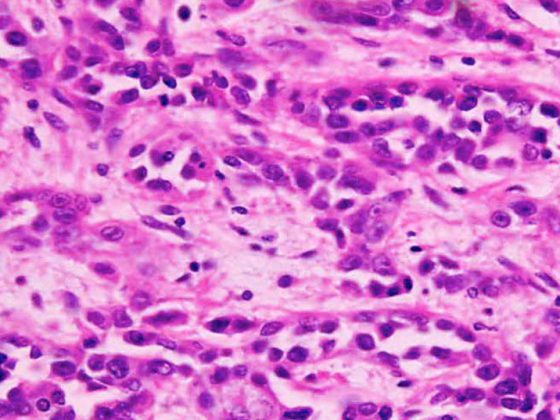In Basel, an update on diagnostics and therapy was given at this year’s Dementia Forum. The two experts Prof. Dr. phil. Andreas U. Monsch and Prof. Dr. med. Reto W. Kressig from the Felix-Platter-Spital Basel discussed the possibilities of early detection and diagnostics, the significance of biomarkers, preventive approaches and therapeutic strategies of today and tomorrow.
(ag) First, Prof. Dr. phil. Andreas U. Monsch an update on primary prevention and diagnostics of neurocognitive disorders: “There are currently about 113,000 people living with dementia in Switzerland, resulting in direct and indirect annual costs of more than seven billion Swiss francs. Prevention thus has not only an important social, but also a high financial value.” As part of the national dementia strategy, intensive efforts are being made, among other things, to establish and expand the Swiss competence centers for diagnostics (memory clinics). Such centers should be accessible to everyone as close to home as possible and provide a high standard of quality for dementia assessment and early detection. The aim is to contact all relevant organizations by the end of 2014, and to develop diagnostic standards and a specific training concept in the new year.
In addition, primary prevention must address risk factors for AD (especially diabetes, hypertension, obesity, inactivity, smoking, depression, low educational skills). “Through education and staying mentally active, we can develop a kind of cognitive reserve that allows us to compensate for deficits for longer and thus cross the dementia threshold later. However, the course of patients with a large cognitive reserve is then less favorable, which is something that the attending physician should definitely take into account,” he said. The risk factors are often related and occur together. Recently, it has been shown that among them, education in particular plays a very central role [1]. “An interesting tool for perhaps a more game-like approach to primary prevention is the CAIDE Risk app, a dementia risk index based on Finnish data,” explained Prof. Monsch [2].
Early detection and diagnostic approaches
Case finding can be used to distinguish cases in which a “watchful waiting” strategy is sufficient from those that require further diagnostic steps. With the BrainCheck, a tool is now available for the family doctor’s practice that allows an assessment in this regard in a very short time (multilingual templates, accessible online, as paper and app; longer article on the subject of BrainCheck in issue 1/2015). In diagnostics, the so-called Montreal Cognitive Assessment (MoCA) will soon replace the Mini Mental State Examination (MMSE), as it is significantly more sensitive (but also more difficult).
“DSM-5 brought revised terminology. The term dementia is now actually obsolete because it is perceived as stigmatizing. It now corresponds to the so-called ‘major neurocognitive disorder’. However, the procedure remains basically the same: at the beginning there is always the recognition of a decrease or impairment of cognitive performance, after which one tries to determine the cause/etiology (e.g., an Alzheimer’s disease),” the speaker explained. In practice, valid values of the following relevant cognitive dimensions are already available for differentiating diagnostics: Attention, Learning and Memory (each verbal and visual), Speech Production and Executive Functions (motor and visual) [3]. Intensive research is also being conducted in Basel on the recording of the DSM-5 dimension “social cognition”. Cognitive impairment can be observed several years before the diagnosis of mild cognitive impairment (MCI). At the earliest, eight to six years before diagnosis, disturbances in verbal episodic memory become apparent, four to two years earlier in visual memory. Furthermore, problems in semantic memory, information processing speed, and executive functions can be detected 24 months before MCI. At this point, relatives also report changes.
Regarding biomarkers, problems with laboratory technology and thresholds persist in CSF analysis. MRI volumetry is on the way. FDG-PET has been a covered service since July 1, 2014 and is important for specialized differential diagnosis. Amyloid PET is also approved in Switzerland (florbetapir), but some questions regarding indication and false positive results remain open.
State of the Art in Dementia Therapy
“There is a lot to report from Alzheimer’s research this year,” Prof. Reto W. Kressig, MD, introduced his talk. The multifactorial approach in dementia therapy is more important than ever: professional psychological care for relatives is a central component in the overall concept (START study), which not least allows institutionalization to be delayed and additional care costs to be saved.
Furthermore, non-pharmacological approaches are also becoming increasingly relevant for those affected themselves. At the AAIC Congress in Copenhagen, there were exciting lifestyle findings in this regard: the Finnish FINGER Trial was the first large intervention study (1260 participants) to examine the influence of a comprehensive program consisting of dietary changes, physical activity, cognitive training, social activities, and control of cardiovascular risk factors on cognitive performance after two years. The participants were not demented, but were only considered to be at risk for cognitive impairment and Alzheimer’s disease. Compared with the arm under standard health advice, the intervention actually showed improvement, so it is reasonable to assume that Alzheimer’s disease can be delayed with lifestyle adjustments. Another randomized controlled trial (FINALEX) [4] demonstrated that an intensive and long-term exercise program significantly improved the physical competence of Alzheimer’s disease patients living at home without incurring additional costs in the final balance. There are similar results on cooking and music interventions [5]. The goal is always to reduce some of the stress and effort of the caregiver by having the individual show emotional and behavioral improvement. Conversely, this also has a positive effect on the patient.
“The prevention efforts of recent years seem to be slowly bearing fruit. Above all, the consistent treatment of cardiovascular risk factors is currently leading to a decline in the incidence of dementia. This was confirmed by the Framingham study, among others,” the expert said.
Drug therapy: Expanding the field
What does therapy research look like in 2015? Interesting approaches are offered by gantenerumab, crenezumab (antibody against amyloid, passive “vaccination”), CAD-106 (active immunization) and pioglitazone (known from diabetes therapy, effect through reduced neuroinflammation?). The preventive efficacy of pioglitazone is being studied prospectively in a trial, at a minimum dose of 0.5 mg/day for seven years in cognitively healthy but APO-E4-positive subjects.
In addition, since last year, the higher-dose rivastigmine patch 15 has been available (13.3 mg/24 h), which showed a significantly stronger effect on the ADCS-iADL scale and good tolerability compared with the 9.5-dose at weeks 16 and 48 [6]. “In patients who have tolerated treatment at the lower dose well for at least six months and show cognitive and/or functional decline (as assessed by the physician), the higher dose can be used,” Prof. Kressig explained. “In my opinion, preparations containing ginkgo also have a place in dementia therapy, e.g., they lead to significant improvements in everyday activities, as GOTADAY and GOT-IT! have shown. However, the effect is only confirmed in the dosage of 240 mg.” Memantine should now be used in Alzheimer’s dementia only in combination with cholinesterase inhibitors (approved, but not subject to insurance coverage) (Fig. 1).

Finally, according to Prof. Kressig, nutritional supplements are also very useful pillars in the overall therapy concept. Here he highlighted Souvenaid®, “nerve food” as he said. Randomized controlled trials have demonstrated its beneficial effects in mild (early) Alzheimer’s disease [7]. However, unlike protein supplements [8], it is not subject to health insurance coverage. “At our clinic, we also measure vitamin D levels and correct them if necessary,” the speaker concluded.
Source: 4th Basel Dementia Forum, November 20, 2014, Basel
Literature:
- Norton S, et al: Potential for primary prevention of Alzheimer’s disease: an analysis of population-based data. Lancet Neurol 2014; 13(8): 788-794.
- Exalto LG, et al: Midlife risk score for the prediction of dementia four decades later. Alzheimers Dement 2014 Sep; 10(5): 562-570.
- Beck IR, et al: Establishing robust cognitive dimensions for characterization and differentiation of patients with Alzheimer’s disease, mild cognitive impairment, frontotemporal dementia and depression. Int J Geriatr Psychiatry 2014 Jun; 29(6): 624-634.
- Pitkälä KH, et al: Effects of the Finnish Alzheimer disease exercise trial (FINALEX): a randomized controlled trial. JAMA Intern Med 2013 May 27; 173(10): 894-901.
- Narme P, et al: Efficacy of musical interventions in dementia: evidence from a randomized controlled trial. J Alzheimers Dis 2014; 38(2): 359-369.
- Cummings J, et al: Randomized, double-blind, parallel-group, 48-week study for efficacy and safety of a higher-dose rivastigmine patch (15 vs. 10 cm²) in Alzheimer’s disease. Dement Geriatr Cogn Disord 2012; 33(5): 341-353.
- Scheltens P, et al: Efficacy of Souvenaid in mild Alzheimer’s disease: results from a randomized, controlled trial. J Alzheimers Dis 2012; 31(1): 225-236.
- Lauque S, et al: Improvement of weight and fat-free mass with oral nutritional supplementation in patients with Alzheimer’s disease at risk of malnutrition: a prospective randomized study. J Am Geriatr Soc 2004 Oct; 52(10): 1702-1707.
HAUSARZT PRAXIS 2014; 9(12): 36-38











